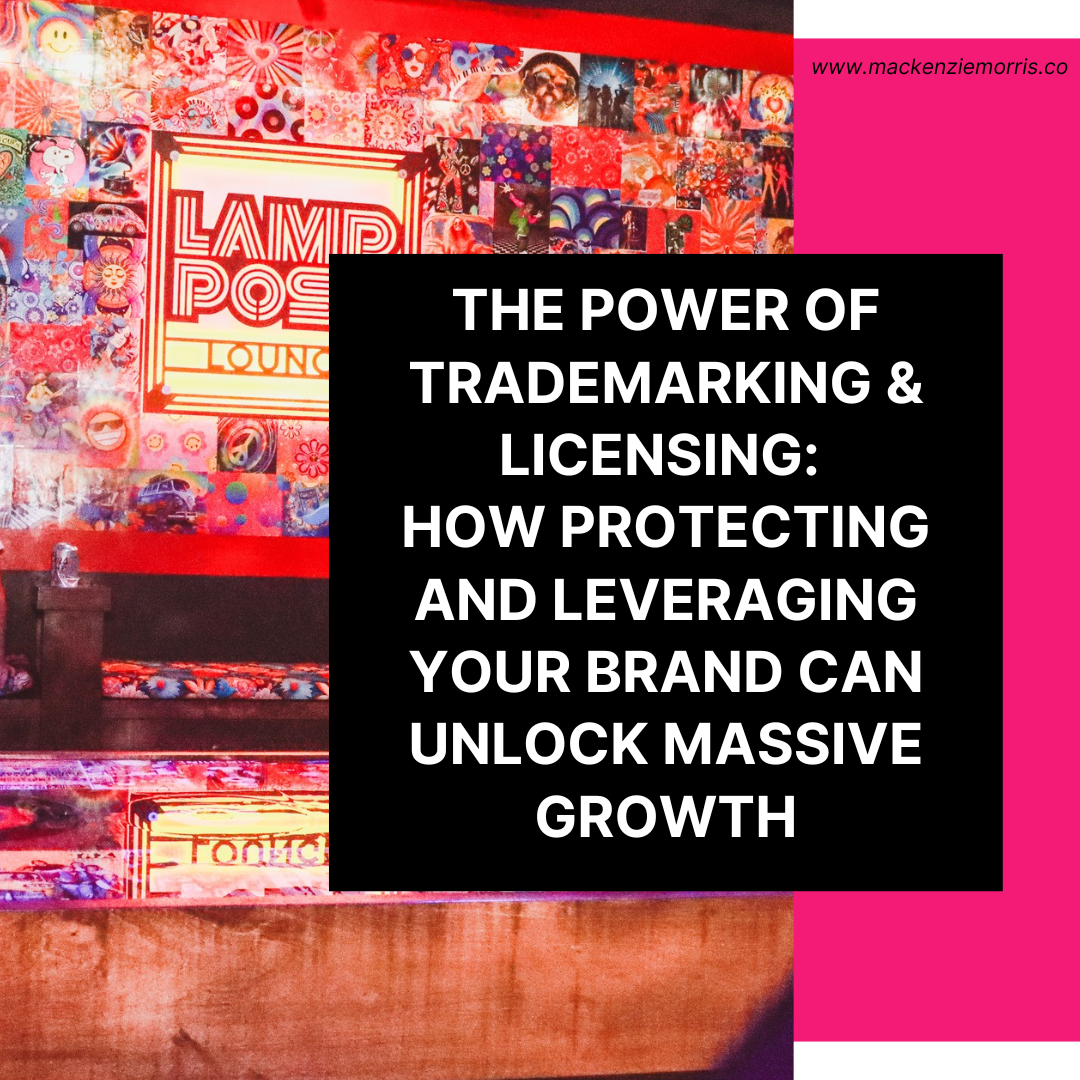The Power of Trademarking & Licensing: How Protecting and Leveraging Your Brand Can Unlock Massive Growth
When most entrepreneurs think about growing their business, they think about more sales, more marketing, and maybe a new product line. What they often don’t think about is one of the most powerful tools for scaling without more hustle: trademarks and licensing.
Done right, trademarking your brand and strategically licensing it can turn your name into an asset that earns revenue whether you’re actively working or not. And it’s not just for billion-dollar corporations—small business owners, influencers, and local brands are tapping into this model to create consistent income streams.
Why Trademarking is a Road to Long-Term Brand Wealth
A trademark is more than a legal formality—it’s ownership of your identity in the marketplace. It’s the difference between thinking you own your brand and actually owning it in the eyes of the law.
1. Brand Ownership
Your name, logo, and slogan are part of your business DNA. Without a trademark, they’re vulnerable to being copied, stolen, or diluted by competitors. By registering your trademark, you lock in your exclusive right to use it in your industry. That means you control how it’s used, where it appears, and by whom.
Think about it this way: your brand is like a house. Without a deed, you can decorate it, live in it, and feel like it’s yours—but you can’t stop someone else from moving in. A trademark is your deed.
2. A Legal Shield
If someone tries to profit off your name, your trademark gives you the legal muscle to shut it down quickly. Without it, you could be left spending thousands in legal fees trying to prove your ownership—often without success.
Example: One small skincare company trademarked their brand name early. Years later, a national retailer accidentally launched a product line under the same name. Because the small company held the trademark, they not only stopped the launch but also negotiated a licensing deal, turning a potential lawsuit into passive income.
3. A Business Asset You Can Monetize
Trademarks aren’t just protection, they’re property. They can be bought, sold, licensed, or even used as collateral for financing. When you trademark your brand, you’re creating an asset that grows in value as your reputation does.
Licensing: The Scalable Growth Strategy Hiding in Plain Sight
Licensing is the often-overlooked business model where you let another company pay you for the right to use your brand. They make and sell the product, they do the marketing, and you earn a percentage of every sale.
It’s one of the most scalable ways to grow because:
You’re not producing new products yourself.
You’re tapping into someone else’s distribution channels.
You’re expanding your brand reach without increasing your workload.
Imagine a beloved local bakery licensing its name to a frozen dessert company. Suddenly, their brand is in grocery stores statewide—without baking a single extra cake.
The Barbie Blueprint: How Licensing Can Become a Cultural Moment
The 2023 Barbie movie wasn’t just a film—it was a licensing masterclass.
Mattel didn’t limit Barbie to dolls or movie tickets. They partnered with brands across industries: clothing lines, beauty products, home décor, even food and beverage collaborations. Everywhere you turned—whether in Target, on Instagram, or in your local coffee shop—you saw Barbie.
Why did it work?
Nostalgia + Modern Relevance – Barbie tapped into decades of brand recognition while speaking to today’s audiences.
Audience Alignment – Every partner brand shared similar demographics, values, and aesthetics.
Brand Consistency – No matter the product, the Barbie essence was clear—bright, bold, and unapologetically pink.
The takeaway: licensing works best when it amplifies your brand identity rather than diluting it.
The Power Is in the Name
When your brand is recognized and trusted, it carries value—sometimes more value than the product itself. That’s why brands like Supreme, Magnolia, or Disney can extend into completely new categories and still sell out.
For small business owners, this means:
Your brand name could appear on products you don’t make yourself.
You could partner with other businesses who want your credibility.
You can scale faster by letting your name travel farther than you can.
Example: A popular coffee shop partners with a local brewery to launch a coffee-infused beer under the coffee shop’s brand. The beer reaches new customers, the coffee shop earns licensing revenue, and the brewery benefits from the coffee shop’s loyal following.
Is Licensing Right for You?
Licensing isn’t for every brand—but it’s worth exploring if:
You have a loyal customer base and strong brand recognition.
Your brand could translate into other products, services, or experiences.
You’re willing to create clear brand guidelines to maintain quality and consistency.
If you’re early in your business, focus first on building recognition and securing your trademark. If your brand is already established, licensing could be your next big growth lever.
The Bottom Line
Licensing isn’t just for corporations with billion-dollar budgets. With the right trademark foundation and a clear brand identity, you can create a revenue stream that grows with or without your daily involvement.
If you’re curious about protecting your brand or exploring licensing opportunities, now is the time to act. Secure your trademark, think bigger about how your brand can live beyond you, and open the door to a new chapter of business growth.

